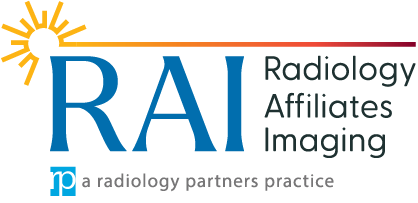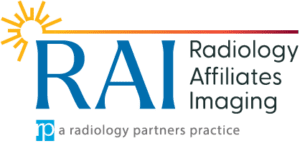What is an MRI?
MRI stands for magnetic resonance imaging, a diagnostic imaging technique that uses a very powerful magnetic field and radio waves to obtain highly-detailed images of organs and other tissues located throughout the body. The technique uses no x-rays; instead, the magnetic field of the MRI machine “lines up” tiny subatomic particles that comprise tissues and organs, and the MRI’s special radio waves cause these particles to release signals that can be detected and captured by a very sensitive receiver inside the MRI machine. Once these signals are captured, special software is used to produce the highly-detailed images as a series of “slices” of tissue that can be viewed from any angle. Like x-rays, the procedure is non-invasive and causes no discomfort.
When is magnetic resonance imaging used?
MRI radiology is used to diagnose and evaluate injuries, diseases and other medical issues and abnormalities in many different areas of the body. The images produced by an MRI enable the radiologist to examine both healthy and unhealthy tissue to develop an understanding of diseases processes and injuries at a very high level of detail. MRIs are routinely used to assess:
- the brain and skull for signs of stroke, aneurysm, tumors and neurodegenerative diseases;
- the heart and circulatory system to evaluate the structure and function of the heart or aorta, to assess the extent of damage following a heart attack or as a result of heart disease, or to look for inflammation and blockages in blood vessels;
- internal organs including the liver, kidneys, uterus, pancreas, spleen, ovaries and prostate;
- Prostate MRI’s are available on our Wide Bore 3T MRI.
- the breasts in women with dense breast tissue or when screening or diagnostic mammography reveals abnormalities that require additional imaging;
- Breast MRI available on our Short Bore 1.5T MRI.
- the bones and joints to evaluate condition like arthritis, disc disease, bone infections or tumors, or other injuries or abnormalities that affect the function of joints
MRIs may also be used to evaluate the effects of ongoing medical treatments for chronic conditions or before or after surgery.
What happens during an MRI?
The MRI machine is a long tube hat’s open at both ends. The magnetic field is created by magnets contained within the tube. During the MRI procedure, you’ll lie on an exam table that passes through the MRI machine. You’ll be able to speak with the radiologist or technician through an intercom system, and you may be be given headphones or earplugs to wear. As the magnetic field moves around you, the MRI machine will make tapping or thumping noises that can be loud at times. Music transmitted through the headphones or speakers can help mask the sounds. Because the entire body will slide into the tube during the exam, some people feel claustrophobic. If you’re worried you may feel too confined, you may be able to receive a sedative to calm you. Depending on the extent of the exam, your MRI may last up to an hour and sometimes a little longer. Once the MRI is complete, you can resume your normal activities. If you’ve been sedated for your MRI, you’ll need someone to drive you home.
Eliminating Anxiety with Visual Therapy
We understand that the thought of having to undergo an examination can be stressful and build up unwanted anxiety. At Radiology Affiliates Imaging, our goal is to make every visit comfortable and relaxing for all of our patients so we’ve incorporated visual therapy and nature imagery at both of our imaging facilities. The ceilings of our CT and MRI suites resemble the skies of spring, transforming the rooms into spaces of natural beauty and freshness. The idea of nature imagery, a form of visual therapy, helps you relax during imaging procedures. The minute you enter our suite, you will feel at ease and therefore eliminate anxiety.
Weekend MRI Appointments: Available at all locations. Contrast procedures on Saturdays.
Available Locations
Preparation Instructions
-
-
- Please leave your jewelry at home.
- You may have to change into a gown.
- If you are having an abdominal and/or pelvic MRI, you may not eat or drink for 4 hours prior to your appointment. You may take necessary medications with a small amount of water.
- Bring your prescription and insurance card.
- Bring all previous imaging/radiology studies (that were not done at RAI) relating to your current study.
- Please call us at (609) 585-8800, if you have any of the following:
- Cardiac Pacemaker Artificial heart valve prosthesis
- Eye implants or metal ear implants
- Any metal puncture(s) or fragment(s) in the eye
- Any metal implants activated electronically, magnetically or mechanically
- Aneurysm clips
- Copper 7 IUD
- Penile implant
- Shrapnel or non-removed bullet
- Pregnancy
- Claustrophobia
- Additional questions
-

